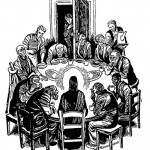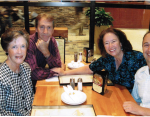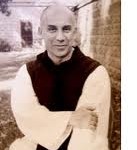Twenty-First Sunday in Ordinary Time – Cycle C
Reflecting on Isaiah 66: 18-31
When Isaiah promised that all the nations would stream to Jerusalem because of their encounter with the God of Israel, he envisioned a great pilgrimage of joyous new believers coming to the Holy City because that was where God dwelt.
I recently met a family who reminded me that where there is Love, there God dwells. Several years ago the Stallings family from Frisco, Colorado discerned that they were being called to bring Christ’s love to the poorest of Uruguay.
Thus began The Fields of the Fatherless (see Proverbs 23:10 for the beautiful scripture text which inspired their work), a farm expressly for the delight and healing of children orphaned because of the increasingly fragile family ties in this most secular country in South America.
Funded through the good will of a small group of friends, the Stallings bought a beautiful working farm in a rural area in Uruguay. Then they started inviting orphans―and there are many there because of restricted adoption rules, legalized prostitution, and a huge decline in couples marrying and staying together.
The children come for escape from the tensions and loneliness of orphanage living, and oh, how they find it there. They swim in the big swimming pool. They ride the horses and pet the baby goats. They get one million hugs from Cathy and Gary and their two wonderful teenagers Abi and Josh (who adapted and learned the language even faster than their parents).
I love to travel to Israel to touch the places where Christ lived. But my spirit soars when I hear stories of joyful believers who are taking Him to the loneliest corners of the human heart.
Where do you see Jesus alive today?





